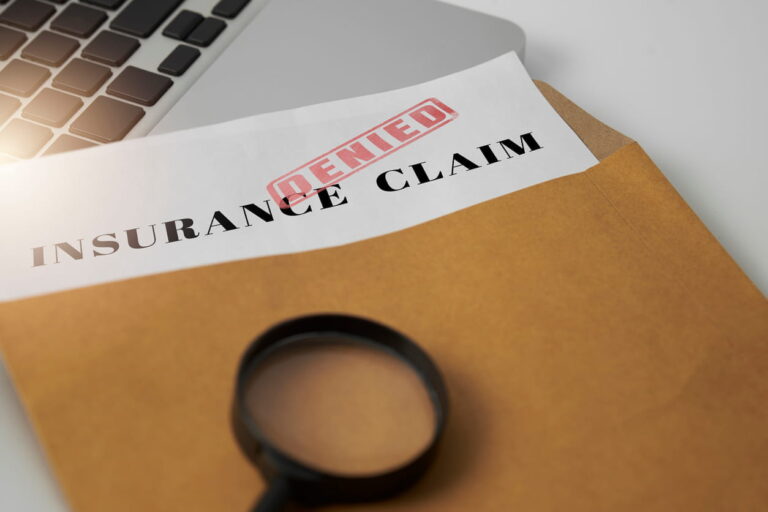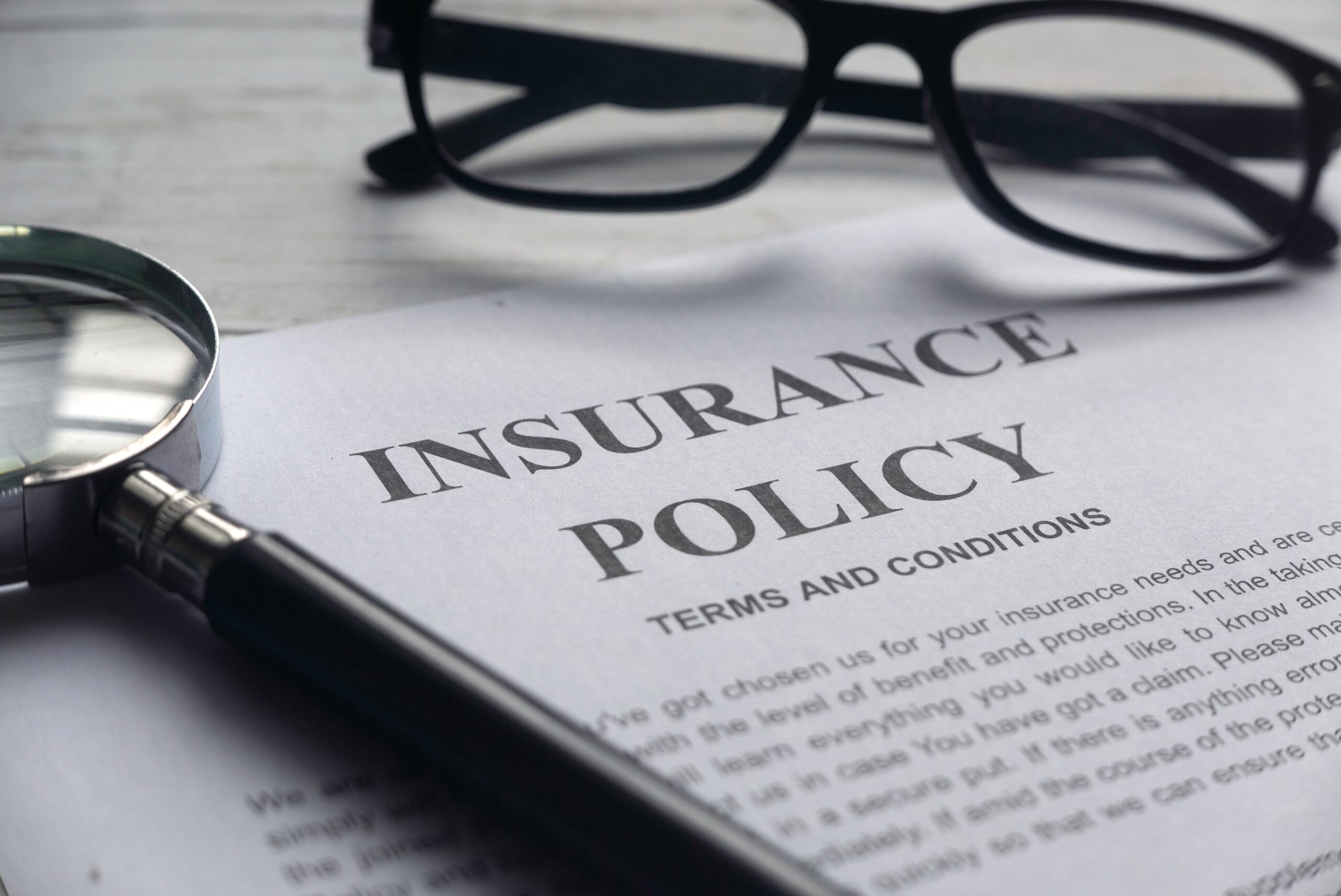What You Need to Know to Battle Bad Faith Insurance Denials

We have insurance to protect our health, homes, and vehicles. But what happens when the promise of protection and coverage gets denied, even when we are entitled to it?
While most insurance companies are in the business of sticking to their promises, even the best of the best find themselves engaging in bad faith insurance denials. According to the latest reporting, bad faith insurance denials have been on the rise over the years, and now, more than ever, policyholders are fighting for their rights to the protection they’re entitled to.
If you’ve been involved in an auto accident and believe you’ve been the victim of a bad faith insurance denial, speak with a bad faith lawyer at Bachus & Schanker. Our team of attorneys, paralegals, and investigators can help you hold your insurance company responsible after a bad faith denial.
What is a bad faith insurance denial?
When you file a claim with an insurance company, by law, that company owes you a duty to act in good faith. Simply put, the insurance company must not look for ways to escape its obligation to investigate the claim or pay you. Doing so would constitute “bad faith.” Claims or lawsuits based on bad faith may stem from one or more actions or inactions by the insurance company, from denial of coverage to failure to negotiate a fair settlement.
If the stated reason your insurance claim was denied does not reflect the actual facts of your claim or does not reflect your coverage, you have a right to dispute the decision. If the insurance company fails to process your claim appropriately, you may have reason to believe they acted in bad faith.
Acting in bad faith is considered a breach of duty to act in good faith, which can cause a breach of contract.
While some claims, such as full car replacement, are specific to certain policies and may not cover every driver, auto insurance companies are legally required to honor the policy you pay for. But it’s probably no surprise that insurance companies save money by denying claims. This does not mean they are always dishonest, but it does mean they will deny your claim when in doubt.
How does Colorado law protect against bad faith insurance denials?
When you enter into an auto insurance policy, you enter into a legally binding contract. Essentially, you agree to keep up with regular payments for your policy coverage, and your insurance company agrees to cover the costs in an accident as outlined by your policy terms.
When an insurance company acts in good faith, they will help you do the following:
- Provide you with a way to file your accident claim
- Investigate your claim in good faith
- Pay for the cost of your accident as covered under your auto policy
- Defend you against lawsuits from other parties that have accused you following an accident
- Communicate and act in a reasonably timely manner
When acting in good faith, both parties agree to take their obligations seriously. Acting in good faith is an implied act and does not need to be stated in a contract, though it helps if it is stated in an agreement.
Colorado law has regulations in place that help promote good faith practices and discourage bad faith insurance denials.
Under Colorado’s Unfair Claims Practice Act, it is against state law for an insurance company to use deceptive practices when working with first-party and third-party insurance claims.
A first-party claim is a claim filed by someone against their own insurance company. In comparison, a third-party claim is a claim filed against another person’s policy.
These deceptive practices range from discriminating against an individual based on their gender, sex, or class to misrepresenting policy coverage to engaging in unfair communication practices, and everything in between.
What are common bad faith auto insurance tactics?
An auto insurance company that is acting in bad faith will do so using a range of tactics. Beware of these common bad faith insurance tactics to help keep your rights protected:
- Your claim is denied without giving a reason: If you made a valid claim after a car accident and it was denied for no reason or an incorrect reason that may be bad faith
- Failure to conduct an adequate investigation of the insurance claim: Insurance companies are required to conduct prompt and thorough investigations after an accident. Delayed or incomplete investigations leading to a denial may be bad faith.
- Unreasonable delay in processing payment: Even if your insurer agreed to pay your claim, unnecessarily delayed payments may be evidence of bad faith tactics
- Attempts to settle your claim at a substantially lower amount: Insurance company efforts to “low-ball” your settlement and give you far less than the claim is worth is an act of bad faith
- Misrepresenting the law or policy coverage: By law, insurers must be honest and truthful in their statements about the law and the policies involved in your claim
- Refusing to provide documentation: Insurance companies are expected to comply with documentation requests from policyholders. Refusal to supply documents related to your claim is a red flag.
How to sue an insurance company for bad faith
If you believe your auto insurance policyholder is acting in bad faith or a breach of contract may have occurred, you may be able to sue your insurance company for damages. Follow these four steps before filing a bad faith insurance claim:
Review your auto insurance contract
In order to be successful in a bad faith insurance lawsuit, you’ll need to have all your ducks in a row and be aware of any exceptions, exclusions, deadlines, or other loopholes that may exist in your auto insurance policy. You can do this by reviewing your insurance contract with an experienced bad faith attorney.
Collect evidence
The next prong of a successful bad faith insurance lawsuit is evidence. You’ll need to provide proof your insurance company is acting in bad faith. Critical pieces of evidence that can show this include proof of loss, such as estimates for repairs or replacements of your personal property, medical documentation regarding your injuries sustained, invoices for medical treatment, and other documentation showing your losses.
How to prove bad faith insurance
Documentation and logs are critical to helping you prove that bad faith has occurred on the part of your insurance company. In addition to keeping a detailed record of your losses, you should also collect all documentation provided by your insurance company. If your policyholder denies your claim based on the evidence you have, this helps prove your case.
Appeal the denial
You’ll need to have an appeal on file for your denied claim. When your initial claim has been denied, you’ll need to provide a written statement requesting that a supervisor or the next individual in the chain of command review your claim. Requesting this action in writing is important to have documentation for your records. This documentation will help support your bad faith lawsuit if it gets to that point.
It’s also important to provide this request for review in a timely manner because you need to give the insurance company a reasonable amount of time to correct their mistake. Otherwise, your bad faith lawsuit could be thrown out.
Seek out legal guidance
Navigating the process of filing a bad faith lawsuit can be nuanced, intimidating, time-consuming, and overwhelming. Seeking out the support of a bad faith insurance attorney allows you to work with legal representation that knows what to look for when investigating your contract, compiling evidence, and talking with the insurance company.
What to do if you receive a bad faith denial
If you believe your auto claim has been denied in bad faith, you have legal options available to you. The insurance company is not the be-all and end-all when it comes to what you can recover following an accident. Whether the insurance company denies your claim or offers you a settlement much lower than you deserve, consulting with a car accident lawyer can help you determine what steps you should take next.
Contact a Bachus & Schanker bad faith claim attorney

If you believe your claim was denied in bad faith, you can still recover the compensation you deserve. Speak with a bad faith attorney immediately after your claim denial to get the ball rolling on holding your insurance provider accountable.
Sources:
Johnson, J. (2023). What to Do When Your Car Insurance Claim is Denied.
Zigelman, M. et. al. (2022). Bad faith claims against insurers on the rise; how they can remain in good graces.






